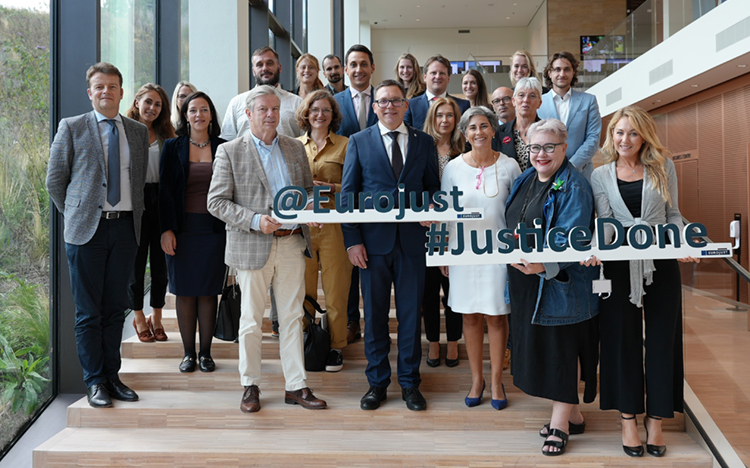A delegation of 12 Members of the European Parliament (MEPs) visited Eurojust today to learn about the Agency’s role in tackling environmental crime, and to discuss what the European Commission’s proposal for a new Environmental Crime Directive means for the Agency.
 During the visit, Eurojust’s President and staff presented trends and lessons learnt through the Agency’s environmental crime casework. A concise summary of Eurojust’s key work in this area is available in Eurojust’s environmental crime factsheet, published today on the occasion of this dedicated meeting.
During the visit, Eurojust’s President and staff presented trends and lessons learnt through the Agency’s environmental crime casework. A concise summary of Eurojust’s key work in this area is available in Eurojust’s environmental crime factsheet, published today on the occasion of this dedicated meeting.
Eurojust has been active in the environmental crime area since the Agency’s creation 20 years ago. The number of new environmental crime cases referred by Member States to Eurojust has tripled in the last two years, with 13 currently underway only half-way through 2022.
Environmental crime is expanding rapidly, and is one of the most profitable forms of illegal activity in the world. It is a crime type with a specific set of challenges. Cases are complex, international, and often linked with other crimes, while also requiring highly specialised expertise and multidisciplinary support. Moreover, different legislative and investigative approaches also act as a barrier to successful prosecutions.
It is for these reasons that Member States are increasingly turning to Eurojust to use the Agency’s full range of services to tackle environmental crime. Indeed, when compared to all other crime types, environmental crime cases use the most sophisticated Eurojust services (including coordination meetings/centres and joint investigation teams).
Meeting participants learned of the Agency’s longstanding solid expertise in this area, and its tools and services to collaborate closely with all Member States.
Also on the meeting’s agenda was the Agency’s cooperation on environmental crime within and outside the EU, as well as future opportunities and challenges. Eurojust has an established strong cooperation with third countries, who are key to successful prosecutions in the environmental crime area.
The Commission’s proposal for a new Environmental Crime Directive was also discussed during the meeting. Eurojust welcomes the proposal which contains a number of provisions that are highly relevant to the Agency’s work. Once implemented, these provisions will improve the effectiveness of cross-border investigations and prosecutions, by:
- updating existing definitions and defining new criminal offences;
- introducing criteria to assess the terms used to define environmental offences;
- introducing dissuasive and proportionate sanctions for natural and legal persons;
- strengthening the environmental enforcement chain;
- fostering the use of harmonized investigative tools and obliging cooperation through Eurojust, Europol and OLAF;
- obliging Member States to publish statistics on environmental crime related proceedings.
